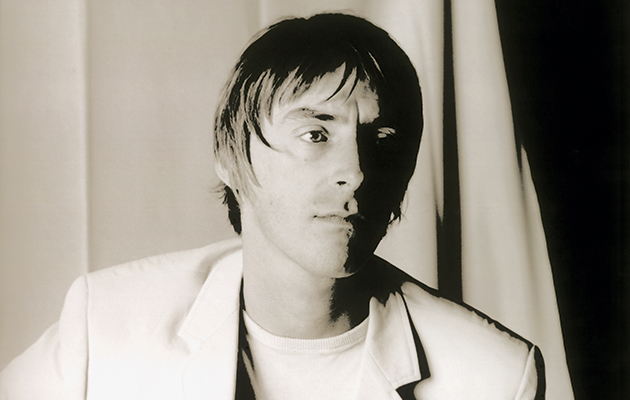How did you feel being dropped by Polydor?
“I thought they were wrong and I was right,” he laughs. “Rightly or wrongly, I believed I was absolutely right in making the last album. I was just being true to myself. On one level I can understand why the few people who heard it didn’t like it and my audience might have hated it. But does that make it wrong? I dunno. I was a lot more arrogant then. I’m the sort of person that, if I become obsessed by something, I can’t see any other way of looking at it. But it was born out of my own arrogance… I boxed myself into a corner to an extent. My head was up my arse. It’s not an excuse, it’s just a stage I went through.”
After over a decade of putting the world to rights, he suddenly found himself feeling decidedly insecure about things. He kept going nonetheless, playing a string of low-key London dates as The Paul Weller Movement. It was evident, to all but the most blinkered, that the spark was still there. With a handful of songs blending with the best of his back-catalogue from The Jam and The Style Council (through necessity rather than choice), each show become a cause for minor celebration. Still, despite two sell-out national tours, Weller was still hiding behind band names and willingly confesses that he was still at odds with himself.
“I was all over the shop at the time,” he admits. “I didn’t have a fucking clue what was going on. It was a ramshackle affair. But in retrospect, the tours were really constructive. You can find yourself onstage sometimes, it can bring something out in you – ambition, drive, motivation – you can use any number of words to describe the feeling.”
The Paul Weller Movement were soon scattered, but the relationship between Weller and fellow Councilman Steve White, who had joined the new band in its infancy, was cemented. The two continued to forge ahead, recruiting musicians as they went along.
“I didn’t think me and Steve would have carried on after The Style Council,” he admits. “If he hadn’t got in touch with me around that time, it might not have happened. Steve had left a couple of years before the band broke up – not necessarily with bad feeling – but there was a kind of vibe between us. He didn’t like the way in which we were heading and we didn’t get on too well. So I didn’t really think about him until a couple of years later. There’s just some sort of chemistry between us – it’s great to play with someone like that.”
By the time Weller had finished recording his eponymous debut solo album, he felt he was back on the right track. Developing the subtle psychedelic qualities reminiscent of latter-period Jam, while retaining the solid R’n’B base that had guided him throughout, the album was, if not faultless, refreshingly unpretentious. It seemed as if a great weight had been lifted from his shoulders.
“There was something there,” he recalls. “With ‘Into Tomorrow’ and ‘Amongst Butterflies’ – I thought that even if I just had those two songs, they were enough of a sign. Before that I’d doubted whether I’d lost it completely. Everything I was writing during the house time didn’t seem to excite me or I didn’t get the same feeling from it. Mind you,” he says soberly, “four years later, lots of people are making dodgy house records, aren’t they?”
If the first album was the first step along the right path, the new LP, Wild Wood, is his most assured work for years. It reflects a broader perspective than before, combining sturdy acoustic-based numbers like “Foot Of The Mountain” and “All The Pictures On The Wall” with grittier material like “Sunflower” and “The Weaver”. Most of it was recorded in one take and it has a timeless quality that’s neither 1968 nor 1993. Significantly, Weller seems driven by a new force. If he once appeared to have the answers to all the world’s problems, he now sets himself a tougher, more personal lyrical examination entirely. “Can You Heal Us (Holy Man)”, the focal point of the album, catches Weller stuck in the middle-ground of life. Having rallied against the status quo for so many years, he finds himself starting to adopt less strident opinions and values, questioning what it’s all about.
“‘…(Holy Man)’ is supposed to be fairly ironic,” he states, pulling his knees under his chin. “I’ve got little time for organised religions. I think they’re a real charade, most of them, and the contradictions are too much for me. But at the same time, I still think that faith is a very important thing. I don’t think I have absolute faith yet, but I still like the idea that some time I will. I come from a family of atheists, which is good in one way ’cos it’s left me clear space to make my own mind up – but I’ve also inherited their scepticism. With my dad, it’s just you’re born, you live, then you die. I appreciate the realism of that, but I like to think that what we’re doing now is worth something. Maybe not tonight,” he laughs, “but in the broader span of things. Whether it’s a vain hope or not, I don’t know. I don’t think we can just be passing through it all. But as for all the vicars and the priests, I’ve got no time for them.”



